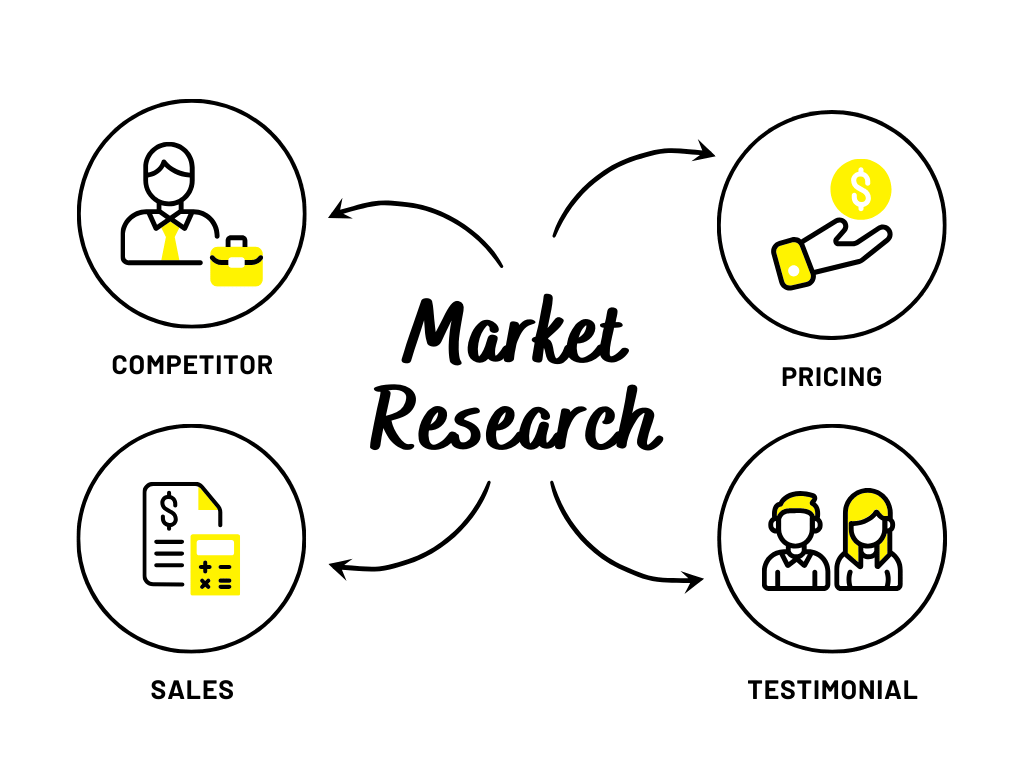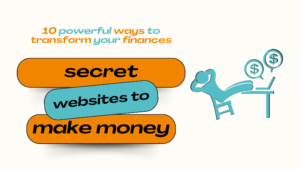Starting a business is a dream for many, but the hefty startup costs often serve as a roadblock. If you’re wondering how to start a business with no money, you’re not alone—and contrary to popular belief, it is entirely possible.
Whether you want to offer a service or sell a product, we’ve covered you with proven methods to kickstart your business without breaking the bank.
Business Planning with No Money
Develop a Lean Business Plan
Instead of a traditional business plan, focus on a “lean” business plan that outlines your business model, target market, and revenue streams.
Use Crowdfunding Platforms
Crowdfunding is a way to get money for a new business by asking many people to give a little bit each, usually online. Websites like Kickstarter and Indiegogo let you show your business idea to the public to get their support.
If you have no money to start, crowdfunding can help you prove that people like your idea and also get the money you need.
Grants and Competitions
Grants and competitions can give you money to start your business. Grants are free money you don’t have to pay back. You get them from the government or other groups. Business competitions are like contests. You show your business idea and might win money or help. Both are good ways to get started without owing money or giving away part of your company. Look for grants and join competitions to get the help you need.
Find a Co-Founder or Partner
Finding a co-founder is like picking a teammate for your business. This person should have skills you don’t have, like knowing tech or having good contacts. When you don’t have money to start, a good co-founder is helpful.
They can also make it easier to get money from investors because a team looks stronger than just one person. Working together makes your business more likely to succeed.
Type of Business You Can Start with no money
1. Service-Based Businesses
In a service-based business, you are selling your skills, expertise, or labor rather than a physical product. Businesses like consulting, coaching, and professional services fall under this category.
1️⃣ Identify the specific skill or expertise you can offer.
2️⃣ Utilize free platforms like LinkedIn, WordPress, or Wix to create a professional profile and portfolio.
3️⃣ Offer free consultations to start building client relationships.
2. Dropshipping
In dropshipping, you create an online store and sell products directly from suppliers. When a customer places an order, the product is shipped directly from the supplier to the customer. You never hold inventory, thus reducing initial costs.
1️⃣ Research a niche market or products that are in demand but not overly saturated.
2️⃣ Use platforms like Shopify or WooCommerce to set up your online store.
3️⃣ Partner with suppliers and integrate their product listings into your store.
3. Affiliate Marketing
Affiliate marketing involves promoting other people’s products and earning a commission for every sale made through your referral.
1️⃣ Choose a niche that you are knowledgeable or passionate about.
2️⃣ Create content around that niche through a blog, YouTube channel, or social media.
3️⃣ Join affiliate programs related to your niche and include affiliate links in your content.
4. Freemium Models
Freemium is a business model where basic services are provided for free, with additional features or services available for a fee. This model is common in the software and digital services industries.
1️⃣ Develop a basic version of your product or service that solves a core problem for users.
2️⃣ Offer this basic version for free to attract a large user base.
3️⃣ Create additional, premium features that enhance the value of your basic product or service and offer these for a fee.
5. Content Creator
A Content Creator produces material for digital platforms, such as articles, videos, podcasts, or social media posts. Content creation spans various topics and media types, from blogging and video production to podcasting and more.
1️⃣ Start by writing on free platforms like Medium or LinkedIn and use social media to share your work.
2️⃣ Offer initial work for free to gain reviews and establish credibility.
3️⃣ Use initial earnings to upgrade tools or create a website, and continually improve your skills.
6. Graphic Design
Graphic design is the art of combining text, images, and other visual elements to communicate messages effectively. It’s a multidisciplinary field that involves layout, typography, color theory, and visual storytelling to engage audiences across various media, from print to digital.
1️⃣ To start in graphic design, you can download free software like GIMP for creating your designs.
2️⃣ Practice by making sample work to show off your skills.
3️⃣ Then, offer your design services to local businesses or try freelancing websites to find clients.
Keep improving your skills and portfolio as you go.
Conducting Market Research When Starting a Business with No Money
 Market research helps you understand customer needs, identify the most effective ways to reach your target audience, and prioritize where to allocate your scarce time and effort.
Market research helps you understand customer needs, identify the most effective ways to reach your target audience, and prioritize where to allocate your scarce time and effort.
This enables you to validate your business idea, develop a product that resonates with potential customers, and operate more efficiently, thereby increasing the likelihood of your business succeeding despite financial constraints.
Why Market Research is Important
Market research shows you who will buy your product. You can then make your product fit what people want. Doing research helps you understand what can go wrong. You can plan for problems before they happen.
How to Launch a Business When You Have Zero Capital
You could focus on service-oriented sectors such as coaching or online advertising, which often need little more than a computer and internet access to get going. You could also look into online funding platforms to raise capital without relying on traditional loans. And don’t forget to take advantage of cost-free digital resources, from organizational apps to marketing aids, to make your daily operations more efficient without breaking the bank.
Building Your Brand
You don’t need to break the bank to create a professional-looking logo and brand. Free online tools like Canva or LogoMaker can help you create your logo easily.
Starting a website can also be budget-friendly. Platforms like WordPress and Wix offer free versions that are perfect for beginners.
Social Media Marketing
You can post pictures, and updates, and even run ads to attract customers. One big advantage is that a lot of this can be done for free.
Guerilla Marketing Tactics
Instead of traditional advertising, you might use street art, flash mobs, or other unique methods to capture people’s attention. The key is to make a big impact with a small budget.
Scaling Your Business
Think about getting outside money, like from investors, when you’re sure your business works. This means you’re making money and have happy customers. External funding can help you grow faster, hire more people, or expand to new locations.
Instead of taking out all the profits you make, put some money back into the business. This helps you grow without needing a loan or investors. You can use it to improve your products, market your business, or even hire more staff. This way, you can keep getting bigger and better.
Legalities and Paperwork
Choosing the Right Business Structure
When you’re starting a business, it’s crucial to pick the right structure, as it impacts your taxes, liability, and even your daily operations. If you’re just getting started and you’re the only one running the business, a sole proprietorship is the simplest. You and the business are essentially the same entity for tax and liability purposes. However, this also means if your business has debts, you’re personally responsible for them.
If you want some protection between your assets and your business, consider forming an LLC (Limited Liability Company). With an LLC, your stuff like your house and car is usually safe if your business runs into legal issues. Plus, it’s more flexible when it comes to taxes.
DIY Legal Essentials
Nowadays, many online platforms offer free legal templates like contracts, business agreements, and even articles of incorporation. Websites like LegalZoom or Rocket Lawyer have a range of templates you can use to sort out the legal stuff without hiring a pricey lawyer. However, remember that these templates are one-size-fits-all and might not cater to the specific needs of your business. It’s a good idea to get free or affordable legal advice online to make sure you’re on the right track.
Summary
Starting a business with no money may seem like a mountain too high to climb, but remember, the greatest ventures often start as a single step. It’s all about your mindset. Take advantage of free and low-cost resources to get your dream off the ground.
Key Takeaways
Having money isn’t the only thing that makes a business successful.
Being creative and never giving up are also very important.
You can find many cheap or free tools to help your business grow.
Frequently Asked Questions (How to start a business with no money)
Is it possible to start a business with no money?
Yes, it’s possible to start a business with no money, especially service-based ventures like consulting. You can use bootstrapping, crowdfunding, or loans for initial costs.
What types of businesses are best suited for starting with no capital?
Service-based businesses like freelancing, consulting, and digital marketing require little to no capital. Digital ventures like dropshipping and affiliate marketing are also low-cost options.
Related: How to Buy a Business with No Money
Related: How to start an online business with no money
- Secret Websites to Make Money in 2025 - April 30, 2025
- Webull vs Robinhood: Which one is better in 2025? - February 14, 2024
- Bubble Cash Review For 2024: Is it Legit or a Scam? - December 30, 2023







1 thought on “How to start a Business with no money”